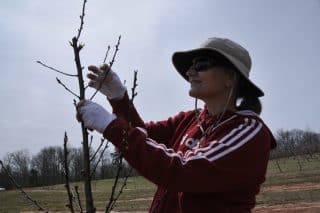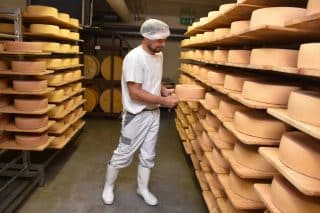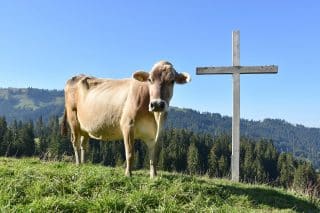In the jungle forests of Bali, wild Asian palm civets run around during the night and eat the island’s coffee beans grown from trees of the Arabica and Robusta varieties. Locals have shared that during the time of the Dutch colonial period in Indonesia, native farmers in coffee plantations discovered that civet droppings which consisted of whole undigested coffee seeds were good to roast and consume, producing the famous kopi luwak or civet coffee, one of the most expensive coffees in the world, with a current retail price as high as 700 USD per kilo.
It is noted by many coffee connoisseurs that the high price of civet coffee is mainly attributed to its rarity and the selection and digestion process that it goes through, more than its distinct taste which has been described to be less superior to other high-grade coffees. The civet coffee has a fruity and earthy taste with a slightly bitter note and has been claimed to heal various illnesses like indigestion and ulcer. The areas within Sumatra, Aceh and Java are the main suppliers of civet coffee from Indonesia, with Bali having sustainable civet coffee farms that contribute to the agro-tourism industry in the island.
AgriExpo e-Magazine visited Lumbung Sari House of Coffee, one of the many establishments in Bali cultivating and selling civet coffee and interviewed Pak Surya, one of their civet coffee experts. Pak Surya shared the history, process and present status of the civet coffee industry in Bali in an interview.

Journalist Vanessa Liwanag and Editor-in-Chief Erin Tallman “On our way to enter Lumbung Sari House of Coffee.” Image: AgriExpo e-Magazine.
AgriExpo e-Magazine: Can you tell us more about the start of civet coffee production in Bali?
Pak Surya: In Bali, civet coffee production started in the Karangasem area, 60 years ago. The process includes collecting the civet droppings from the forest where the civets roam, cleaning and then roasting them. This started the thriving civet coffee industry that continues to aid local communities until today, which include the community of Lumbung Sari.
AgriExpo e-Magazine: Can you tell us more about Lumbung Sari?
Pak Surya: Lumbung Sari was established 10 years and our main product is the civet coffee apart from other products that include Bali coffee, cacao, vanilla coffee, ginger coffee, coconut coffee among many others. We have 100 wild civets that are kept within the forest that Lumbung Sari owns. The civets stay there in the forest and we have around 25 people who collect their droppings once a week. Lumbung Sari has 20 people who work in production, doing the cleaning, roasting and packing of the civet coffee. Lumbung Sari is owned by Dewa Merta and all employees are Balinese, we all work in a community under Lumbung Sari.

During our tour of the Lumbung Sari House of Coffee. Image: AgriExpo e-Magazine.
AgriExpo e-Magazine: How do you take care and feed the coffee beans to the civets at Lumbung Sari?
Pak Surya: We let them roam free in the forest patch owned by Lumbung Sari. They eat the coffee beans that are planted there as they go around. The Arabica and Robusta varieties are planted there and not the variety used for Bali coffee as that particular variety has too much caffeine and it will be bad for the civets to consume that. If you force the feeding of coffee beans to the civets, the result is different, with the taste being mediocre, compared to feeding the civets naturally, you will get good results. It is not good to keep civets in cages. In Bali, most farms have free roaming civets and the civets that you see in a cage are there not for a long time, just for educational and presentation purposes to tourists visiting. We have a female civet here in our premises who is heavily pregnant, but she is not caged, she is here to rest and meet everyone and she is not being harmed.

“We have a female civet here in our premises who is heavily pregnant, but she is not caged.” Image: AgriExpo e-Magazine.
AgriExpo eMagazine: Can you tell us how you accumulate the droppings of the civets in the forest and your production capacity?
Pak Surya: We accumulate the droppings every week which averages to 20 kilos per week. The quantity of droppings per week depends as sometimes there are less than 20 kilos, and sometimes more, as the civets do not eat only coffee beans but also other fruits like bananas for their diet.
Our production depends on the quantity of the civet droppings accumulated. If we have 20 kilos, it will equal to 2 days of production, which would be a total of 10 days for the whole production process including 7 days of gathering all droppings. The civets are protected from hunters and other animals such as snakes and rats, which they can eat also by a perimeter fence around the forest. Our workers also clear the forests from other insects and animals except for the mosquitoes that abound in the area.
AgriExpo e-Magazine: What is the state of the civet coffee industry right now in Bali?
Pak Surya: In Bali, we take care of the civets and a lot of farms here do not cage their civets compared to other civet coffee production establishments in other countries in Asia. The local community that works in each civet coffee farm plays a big part in the continuation of the civet coffee industry as each one plays a part in the cultivation, selling and marketing of this product not only in Indonesia but to the whole world. The local government does not fund our civet coffee farms and there is a healthy number of Balinese who continue producing civet coffee on their own as part of our culture and to gain economically from what nature has to offer to us.






